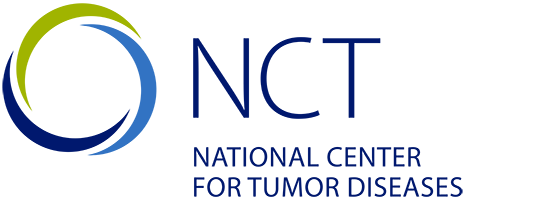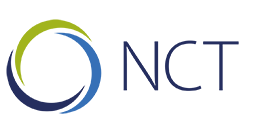Working together for the future of cancer research: NCT Community Retreat strengthens team spirit and innovation
Michael Baumann, Chairman of the Board and Scientific Director of the DKFZ and Spokesman of the NCT Steering Committee, opened the event.
Michael Hallek from NCT West, spokesman of the NCT Steering Committee, presented the NCT's extensive study program.
Johannes Förner, deputy speaker of the NCT Patient Research Council, explained the structure of the Patient Research Council at the NCT.
This was the case at the NCT Community Retreat in Heidelberg, which brought together around 380 participants to discuss the future of the NCT and build new bridges between research and clinical practice together with patients. Michael Baumann, Chairman of the Board and Scientific Director of the DKFZ and one of the two spokespersons of the NCT Steering Committee, opened the event and emphasized the importance of the NCT structure as a platform for clinical-translational research. He emphasized that the One NCT as a unit with different sites will use synergies and promote complementarity. The meeting in Heidelberg served to further expand the One NCT community. Baumann promised: “We will not just have six sites, but a One NCT in which we bring all our strengths forward, utilize synergies and develop complementarity.” The meeting in Heidelberg was intended to further build the One NCT community. Michael Hallek from NCT West, also the spokesperson for the NCT Steering Committee, presented the NCT's extensive study program - from the study idea to the initial screening and study priority and feasibility to budget planning and the final decision on the roll-out of NCT studies. The aim of the retreat is to promote scientific collaboration and the exchange of ideas through networking between researchers and patient representatives, said Hallek - with a focus on the NCT studies. Johannes Förner, Deputy Spokesperson of the NCT Patient Research Council, explained the structure of the Patient Research Council at the NCT. He emphasized the value of patient participation for research: Patient representatives bring their entire network to the table: contact with numerous self-help groups, an awareness of patient-oriented language, their own experiences with various entities, different perspectives and knowledge of patients' concerns and needs.
Travel grants
In a competitive selection process, five travel grants were awarded in advance for the community retreat for young researchers as part of the One NCT program: Klaus-Georg Kreitmeier, Henning Schäffler, André Schulze, Elisabeth Tregel and Carina Wenzel received this award for their outstanding preliminary specialist work and represent different specialist areas at the NCT. The aim of the scholarships is to support young professionals who are interested in clinical trials and would like to develop further in this field. Michael Hallek ceremoniously presented the certificates.
Henning Schäffler, assistant physician at the University Women's Hospital Ulm, NCT Southwest, felt that participating in the NCT workshop was “a great opportunity to discuss your own study ideas with experts from a wide range of disciplines and patient representatives in person.” Elisabeth Tregel from Charité, NCT Berlin, was also delighted with this opportunity: “The travel grant for the NCT Community Retreat was a valuable opportunity for me to take part in such a multifaceted and informative event. I particularly appreciated the interdisciplinary exchange and the in-depth insights into current research priorities in oncology.”
Lively exchange in a variety of formats
Participants were able to learn about and discuss new study ideas in five workshop sessions. At the Science Bazaar, cooperation partners were found and interdisciplinary networking took place. “How do you actually do it?” This was the key question of the group consultations by the Patient Research Council, which were very popular. The various formats of the two-day retreat offered plenty of variety, information and networking opportunities.
Finally, the keynote lecture on the use of artificial intelligence in cancer medicine provided inspiring insights into the future of personalized medicine.
Voices from the One NCT community
“I was able to exchange ideas with numerous colleagues about further possible IITs within the framework of the OCT² program and thus actively promote various research ideas.”
Anne Herrmann-Johns (Institute of Epidemiology and Preventive Medicine, Medical Sociology, University of Regensburg and from the Clinic and Polyclinic for Internal Medicine III at Regensburg University Hospital)
“The NCT retreat was very motivating for me. I really enjoyed the collegial and open atmosphere - I was able to talk to many new and old acquaintances and make lots of plans. The strong role of patient representation is unique in Germany - this was also continuously noticeable at the retreat and, in my opinion, decisive for the great atmosphere in Heidelberg.”
Jochen Schmitt (Center for Evidence-Based Healthcare at the Faculty of Medicine at TU Dresden and University Hospital Carl Gustav Carus Dresden)
“The great interest of the scientists in creative exchange, the willingness to share knowledge and discuss critically already confirms a lively NCT community, even though we are still in the development phase. I was very impressed by the already extremely well-organized patient representatives and their willingness to support clinical research in the best possible way.”
Mariele Goebeler (Head of the Interdisciplinary Study Center, NCT WERA and Bavarian Center for Cancer Research)
“We had great discussions and developed many new ideas.”
Sonja Loges (Director of the Department of Personalized Oncology at the DKFZ-Hector Cancer Institute at the UMM and the Department of Personalized Medical Oncology (A420) at the DKFZ)






